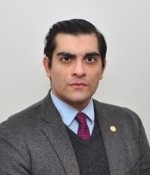Ethical Project Management for
Post-War Public Works
FEATURED PAPER
By Prof. Dr. M.F. HARAKE
MESOS Business School (France)
GBSB Global Business School (Malta)
CEREGE Research Laboratory
University of Poitiers (France)
Abstract
Post-war reconstruction presents some of the most complex challenges in project management, particularly in the field of public works. Roads, bridges, hospitals, schools, and water systems are not only essential for restoring basic services but also symbolic of a nation’s recovery and resilience. Yet in fragile, post-conflict contexts, such projects are highly vulnerable to corruption, mismanagement, and exploitation. This article argues that ethical project management is not simply a best practice but a moral and strategic necessity in post-war public works. The paper begins by defining the principles of ethical project management (transparency, accountability, inclusivity, and sustainability) drawing from international standards and professional codes of conduct. It then examines the unique ethical challenges of post-war environments, where urgency, weak institutions, and vast inflows of aid create fertile ground for unethical practices. Issues such as corrupt procurement, exclusion of marginalized groups, unsafe labor practices, and environmental neglect are analyzed as threats not only to project outcomes but also to long-term peace and trust in public institutions. The article demonstrates how ethical project management contributes directly to post-conflict recovery by rebuilding legitimacy, ensuring equitable access to services, preventing conflict relapse, and fostering sustainable development. Strategies for embedding ethics into project delivery are outlined, including transparent procurement, independent oversight, community participation, capacity building, and accountability mechanisms. Case examples from reconstruction efforts highlight both successes and failures, offering lessons for future initiatives. Ultimately, the study underscores that public works in post-war settings are not purely technical endeavors. They are social and political acts with deep implications for peace, justice, and national cohesion. Embedding ethics at every stage of project management is therefore indispensable to ensuring that reconstruction fosters not only physical recovery but also the foundations of a fair and lasting peace.
Key Words: Ethical Project Management, Post-war Reconstruction, Public Works, Transparency and Accountability, Sustainable Development, Peacebuilding.
- Introduction
- The Complex Realities of Post-War Contexts
Armed conflict leaves behind a landscape of destruction that extends far beyond the visible damage to roads, bridges, schools, hospitals, and water systems. These physical scars, though dramatic, are only part of the picture. The governance structures that regulate public life, the social trust that binds communities, and the economic systems that sustain livelihoods are often equally, if not more, devastated. Institutions that once provided essential services may collapse or lose legitimacy, bureaucracies may be hollowed out by corruption or politicization, and rule-of-law mechanisms may be replaced by informal power structures or war economies (Acostamadiedo Gutiérrez, 2019). The erosion of these foundations creates an environment in which rebuilding becomes exponentially more difficult, as technical challenges intersect with political fragility and social fragmentation.
For ordinary citizens, the aftermath of conflict is marked by urgent, unmet needs. Access to clean water, adequate shelter, functioning healthcare systems, and reliable education are often compromised for years. The destruction of productive infrastructure (i.e. transportation networks, energy grids, and markets, etc.) disrupts economic activity and reduces opportunities for employment, driving many households deeper into poverty. Vulnerable groups, including women, children, internally displaced persons, and persons with disabilities, often bear the heaviest burdens, as they face compounded barriers to accessing resources and participating in decision-making. These realities underscore that reconstruction is not only about repairing material damage but also about addressing deep social inequalities and rebuilding the fabric of everyday life.
At the same time, governments and international partners are under intense pressure to demonstrate visible progress. Post-war societies are politically fragile, and peace agreements often depend on quick “peace dividends” that can reassure citizens that violence has ended and that stability is returning. Roads, schools, clinics, and electricity supply projects are highly visible indicators of recovery and are therefore prioritized as symbols of governmental effectiveness and donor impact. Yet this pressure for rapid results can create tension between speed and quality. Quick, poorly planned interventions risk reinforcing corruption, excluding marginalized groups, or producing infrastructure that is unsustainable (Acostamadiedo Gutiérrez, 2019). Balancing the urgency of visible reconstruction with the slower processes of institution-building, inclusivity, and accountability is therefore one of the most profound dilemmas of post-war recovery.
More…
To read entire paper, click here
How to cite this work: Harake, M. F. (2025). Rebuilding with Integrity: Ethical Project Management for Post-War Public Works, PM World Journal, Vol. XIV, Issue X, October. Available online at https://pmworldlibrary.net/wp-content/uploads/2025/10/pmwj157-Oct2025-Harake-Rebuilding-with-Integrity-featured-paper.pdf
About the Author

Prof. Dr. M. F. HARAKE
Bordeaux, France
![]()
Prof. Dr. M. F. HARAKE is a management professor based in France. He currently serves as the Assistant General Manager and Dean of Academic Affairs at MESOS Business School (France). In addition, he is the Manager of the Research Center at GBSB Global Business School (Malta). He is also affiliated as an Associate Research Fellow at the CEREGE Research Laboratory, University of Poitiers (France). Prof. Harake’s research interests include Post-Conflict Public Management, Crisis and Urgent Operations Management, Humanitarian Logistics, and Project Management in Unstable Environments. His academic and professional contributions focus on bridging strategic theory with high-impact practical execution, especially in volatile and complex contexts.
He can be contacted at mfharake@mesos-bs.com
To view other works by Dr. Harake, visit his author showcase in the PM World Library at https://pmworldlibrary.net/authors/mohamad-fadl-harake/









